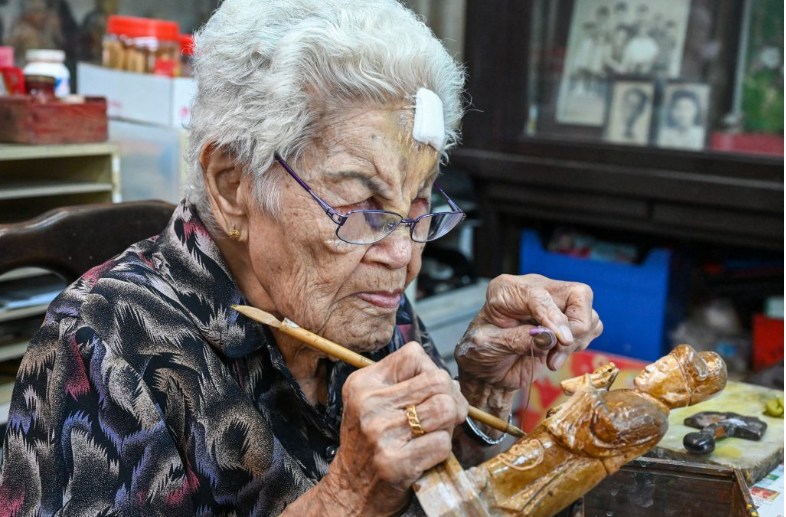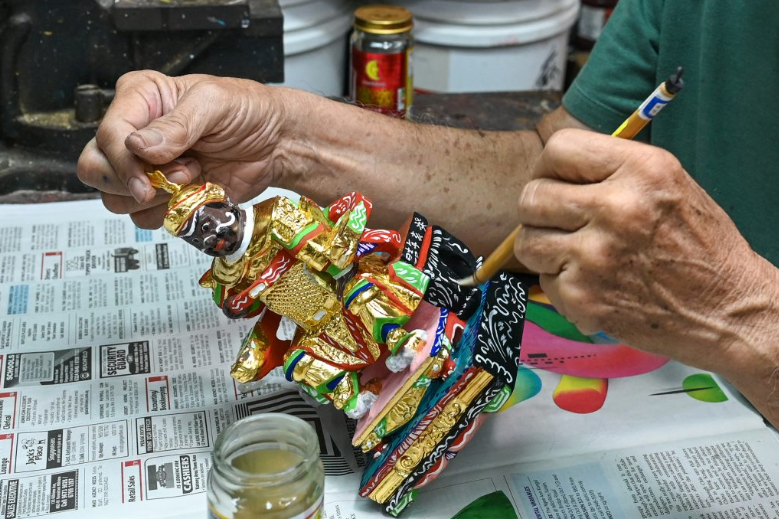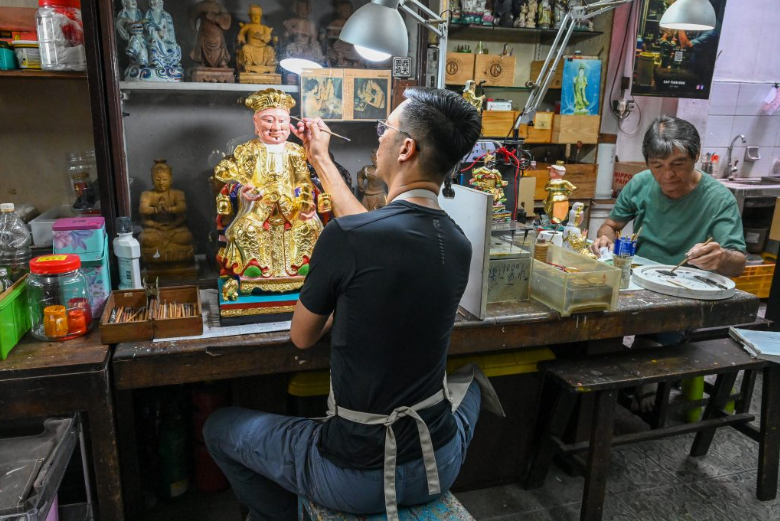Singaporean artisans Keep Religious Icons Alive
AFP/APP
Singapore: Tan Chwee Lian picks up a small paddle, her finger resting on a groove worn into the wood over 70 years of making Buddhist and Taoist deities in her shop, one of the last of its kind in Singapore.
Facing competition from mass-produced items and lacking heirs to take up the trade, the traditional craft is in danger of dying out.
Tan’s more-than-a-century-old shop in downtown Singapore, tucked between hip cafes and boutiques, is one of the city’s last effigy establishments, still making the wooden statues by hand. The 92-year-old great-grandmother has been making the wooden statues since her arranged marriage to effigy craftsman Ng Tian Sang at the age of 18.
The 92-year-old great-grandmother has been making the wooden statues since her arranged marriage to effigy craftsman Ng Tian Sang at the age of 18.
“I sat beside my husband and watched. When he left to buy things or run errands, I would take over, and then he would come back and tell me what I did wrong,” Tan told AFP while using the wooden paddle to roll out a piece of dough made of joss stick ash using a secret family recipe.
She rolled out the mixture until it was a thin thread, then used two bamboo sticks to attach it to a wooden statue in an intricate pattern to demonstrate thread sculpture, a traditional carving technique from southeastern China. Although she is now retired from crafting, she comes to the Say Tian Hng Buddha Shop daily, helping out with odd tasks from her desk at the front of the traditional shophouse stacked with hundreds of gods looking out from the shelves.
Although she is now retired from crafting, she comes to the Say Tian Hng Buddha Shop daily, helping out with odd tasks from her desk at the front of the traditional shophouse stacked with hundreds of gods looking out from the shelves.
Her son, 71-year-old Ng Yeow Hua, runs the shop, making, selling, and repairing Taoist and Buddhist idols for temples and devotees. Handmade effigies take up to three months to make by artisans who must pick up the skills over years of informal learning and are entrusted with trade secrets passed down over generations.
In comparison, machine-made statues are mass-produced, cost a fraction of the price, and can be delivered quickly. “The customers that come to us believe in the beauty of imperfection, of things made by hand, and in the authenticity of something that is made to worship divinity,” the younger Ng said. “But yes, it has caused a decline in the business,” he admitted.
“The customers that come to us believe in the beauty of imperfection, of things made by hand, and in the authenticity of something that is made to worship divinity,” the younger Ng said. “But yes, it has caused a decline in the business,” he admitted.

Comments are closed.